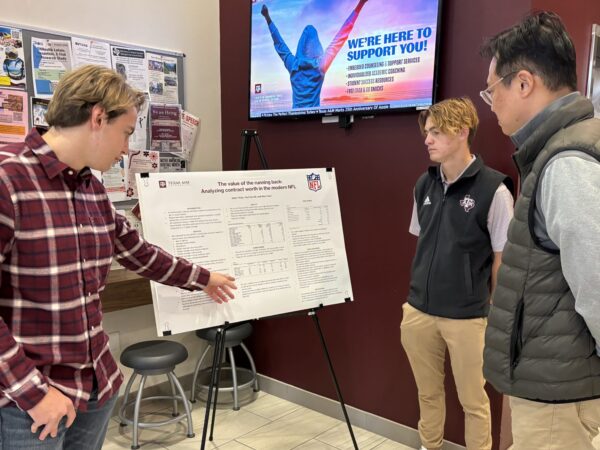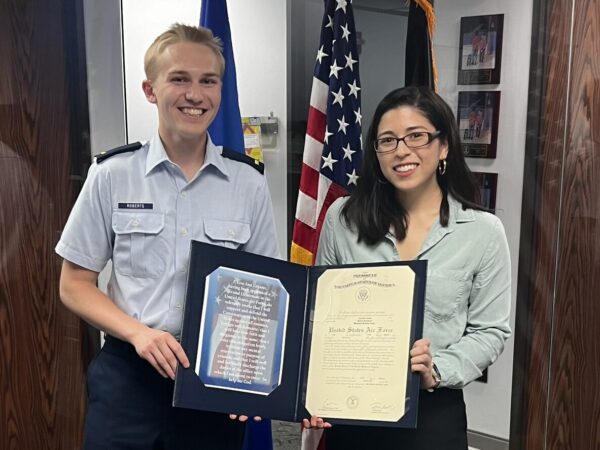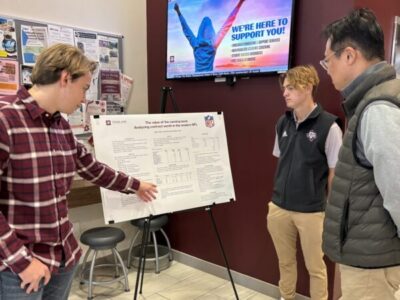
Getting back to education
When future teachers graduate from Texas A&M University, their degree is not what you would expect. Instead of being awarded a degree in education, these students receive a B.S. in Education with certification in specific grade and subject areas.
However, that will change with the return of the education degree in Fall 2021.
“Experts recognized the need to allow educator preparation programs to adequately cover pedagogy and topics that today’s teachers need to know such as: mental health, school ethics, and the needs of exceptional children,” said Dr. Janet Hammer, clinical professor in the Department of Teaching, Learning and Culture.
HISTORY OF EDUCATION DEGREE
Since 1991, colleges and universities have not been allowed to offer a degree in education due to the passage of House Bill 72.
H.B. 72 was passed during a special legislative session in the summer of 1984 and is considered the most massive change in the history of Texas public education. This bill went on to impact Senate Bill 994, passed in 1987.
The main goal of the legislation was to strengthen content knowledge for future teachers, but it greatly reduced the number of education courses for preservice teachers and required all students seeking teacher certification to complete an academic or education degree in addition to professional development coursework. It meant that colleges and universities in Texas could no longer offer a degree in education.
RETURN OF EDUCATION DEGREE
During the state’s 86th Legislative Session in 2019, Texas House Bill 3217 was passed and signed by Governor Greg Abbott. H.B. 3217 removed the exclusion of education as a bachelor’s degree, meaning colleges and universities across the state can once again offer a degree in education.
“A degree in education allows teacher preparation programs to teach the connection between content and practice. Students interested in becoming a teacher will take more classes emphasizing pedagogy, culturally responsive teaching, classroom management and assessment,” said Hammer. “A degree in education allows teacher preparation programs to better prepare teachers for the challenging task of educating the students of Texas.”
Faculty and staff across the college immediately went to work, forming committees to revamp the curriculum to meet the new demands.
One of the biggest changes came in removing the existing 18-hour cap on education courses for these degree plans.
“We really had our hands tied with the 18-hour cap,” said Dr. Valerie Hill-Jackson, Assistant Dean of Educator Preparation. “Now we get to think a bit more creatively. We can even think differently in terms of having one and two-credit-hour courses so that we can do something innovative in terms of field hours or research. We have the ability to do something really different with teacher education and it’s only limited by our imagination.”
So what will the changes look like for students in the college? Hammer said the students can expect to see a stronger teacher preparation program.
“Students can expect to see a vertical and horizontal alignment in which content, pedagogy and culturally-relevant instruction will be included in all of the coursework,” said Hammer. “Students can expect to learn to teach using best practices in a traditional classroom setting and in a virtual format for when face to face instruction is not possible.”
NEW CERTIFICATION
Another legislative move expanded the teacher certification structure to include an additional certification for early childhood to grade three.
Future educators in the state of Texas will also be facing a new assessment for certification and the college was chosen as a pilot university.
For years, preservice teachers have been required to pass multiple exams before being certified, including the Pedagogy and Professional Responsibilities (PPR) exam.
The Texas Education Agency is now working with edTPA (Education Teacher Performance Assessment) to implement new assessment requirements to replace the PPR. edTPA is a performance-based, subject-specific assessment and support system used to emphasize, measure and support the skills and knowledge that all teachers need from the first day in the classroom.
edTPA includes versions for 27 teaching fields. Future teachers are placed in a pre-kindergarten to 12th grade classroom for their assessment to test their skills on three tasks: planning, instruction and assessment. The final product is a portfolio including a video segment of a lesson in a P-12 classroom setting.
Over the last year, the college has engaged in a four-part series of workshops to learn about edTPA and how to prepare our staff, faculty, students and school district partners about the new exam.
Nearly 200 preservice teachers will prepare for the exam in the fall and complete the performance assessment in Spring 2021. To learn more about the new assessment, visit TX.AG/EDTPA
About the Writer
Ashley is the Media Relations Coordinator and responsible for news coverage in the Department of Teaching, Learning and Culture as well as the Department of Educational Psychology.
Articles by AshleyFor media inquiries, contact Ashley Green.
Fundraising
To learn more about how you can assist in fundraising, contact Amy Hurley, Director of Development ahurley@txamfoundation.com or 979-847-9455














